
Attendees of the centennial American Heart Association (AHA) conference commend the meeting's ability to bring together diverse, interdisciplinary perspectives from across the globe.

Attendees of the centennial American Heart Association (AHA) conference commend the meeting's ability to bring together diverse, interdisciplinary perspectives from across the globe.
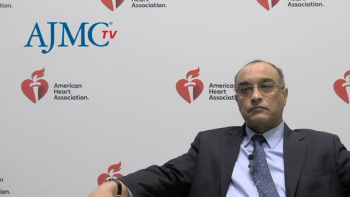
The implementation of a risk evaluation mitigation strategy (REMS) program to monitor patients on mavacamten further supports its real-world use, according to Milind Desai, MD, Cleveland Clinic.
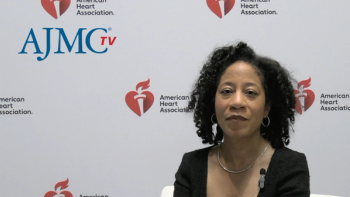
Community-based researchers can teach clinicians a lot about how to best approach underserved populations disproportionately impacted by cardiovascular health complications.
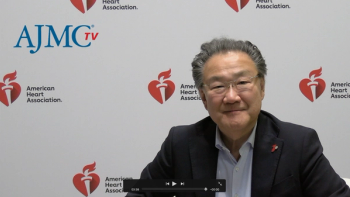
New discoveries in atherosclerosis pathways have shed light on the active mechanisms in other diseases such as chronic kidney disease (CKD) and HIV, paving the way for furture therapeutics.
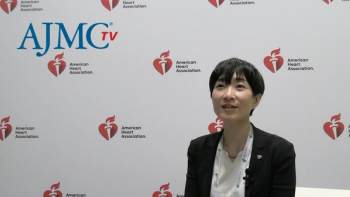
The FINEARTS-HF trial offered novel clinical insights as one of the few cardiovascular trials to feature such a great proportion of female participants.
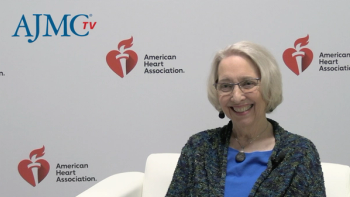
A decision from the American Board of Medical Specialties will be made about a new cardiovascular board by this upcoming February.
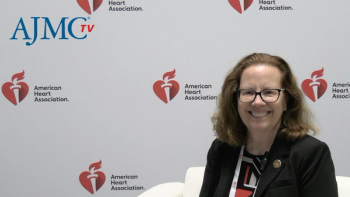
The connection between brain, mental, and cardiovascular health needs considerable more attention, argues Maureen Hood, PhD, RN, Uniformed Services University.

Rebekah Walker, PhD, a first-time participant from the Jacobs School of Medicine and Biomedical Sciences at the University at Buffalo, shares the offerings and opportunities at the 2024 American Heart Association (AHA) meeting that excited her and her team.

Researchers evaluated the lesser-known impact of telehealth treatments, including brief cognitive behavioral therapy (BCBT), to address the needs of individuals at risk of or recovering from suicidal ideation.

The development of a novel, artificial intelligence (AI)-generated biotechnology has the potential to transform care options for patients with idiopathic pulmonary fibrosis (IPF).

Brendon Yee, PhD, professor and respiratory and sleep physician, Woolcock Institute of Medical Research, discusses the success of ALKS 2680, an investigational oral selective orexin 2 receptor agonist.

Although vapes have not been around long enough to yield long-term safety data, known risks associated with their ingredients and reported lung injuries suggest the dangers of this habit.

The FDA has approved oxycodone hydrochloride (RoxyBond) for the management of severe pain when other treatments have proved inadequate.

A recent retrospective, cross-sectional study found that detecting self-injurious thoughts and behaviors in youth requires improvement to ensure equitable identification of at-risk patients.

As National Breast Cancer Awareness Month comes to a close, here are 5 things to note about the prospect of preventive mastectomies for individuals with a high-risk of developing breast cancer.

Vaccine hesitancy grew more prominently in the wake of COVID-19 and the spread of misinformation. This flu season, seeking out reliable sources of health information will help individuals make the best decisions to protect themselves.

Viet Le, PA-C, Intermountain Health, gives insights into the benefits cardio-renal-metabolic care models provide for patients in need.

Navdeep Tangri, MD, PhD, FRCP, University of Manitoba, speaks to the value of population health strategies in clinical approaches to care delivery for patients with chronic kidney disease (CKD).
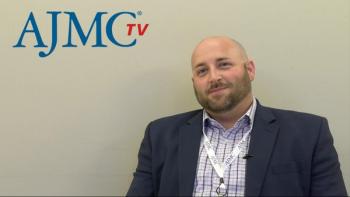
Seth Southwick, MHA, Intermountain Health, discusses in detail the power of leveraging community partnerships and advanced data analytic systems to optimize kidney care.

Amidst ambiguous international guidelines for first-line treatment of opioid use disorder, a new population-based study sheds light on the benefits of methadone vs buprenorphine/naloxone for holding off treatment discontinuation.

Miriam Godwin, CMMI, National Kidney Foundation, touches on the gaps in kidney care that public policy can address, as well as the importance of thinking about the long-term benefits of value-based care.

Many talks at the Association of Cancer Care Centers (ACCC) 41st National Oncology Conference advocated for the adoption of culturally relevant care, the leveraging of community partnerships, and community engagement to build better trust with patients and improve outcomes.

Full-time caregivers to loved one's with Alzheimer disease or other dementias could earn over $100,000 annually if they were compensated for their time and responsibilities.

Financial toxicity and patient and staff wellness were well explored at the Association of Cancer Care Centers (ACCC) 41st National Oncology Conference, serving as the focal point of multiple posters and presentations.

An integrated, rule-based informatics system demonstrated its capacity to leverage electronic health records to streamline the prior authorization process and promote the use of biosimilars.

The 41st Association of Cancer Care Centers (ACCC) National Oncology Conference began with a diverse range of poster exhibits, highlighting important initiatives in patient wellness.

A systematic review analyzing sleep quality and the impact of zinc supplements reveals glaring gaps in knowledge in this area despite suggested benefits, demonstrating the need for future research.

Recent results from a new diabetes reversal program demonstrate the reliable, sustained benefits of nonpharmacological interventions in the management of diabetes and overall health of patients.

A retrospective analysis on newborn screening for spinal muscular atrophy (SMA) provides further evidence for the benefits of early identification and treatment of the disease.

A recent data analysis draws correlations between nurses’ experience of insomnia and presenteeism, and the impact these factors have on patient care.

259 Prospect Plains Rd, Bldg H
Cranbury, NJ 08512
© 2025 MJH Life Sciences®
All rights reserved.
